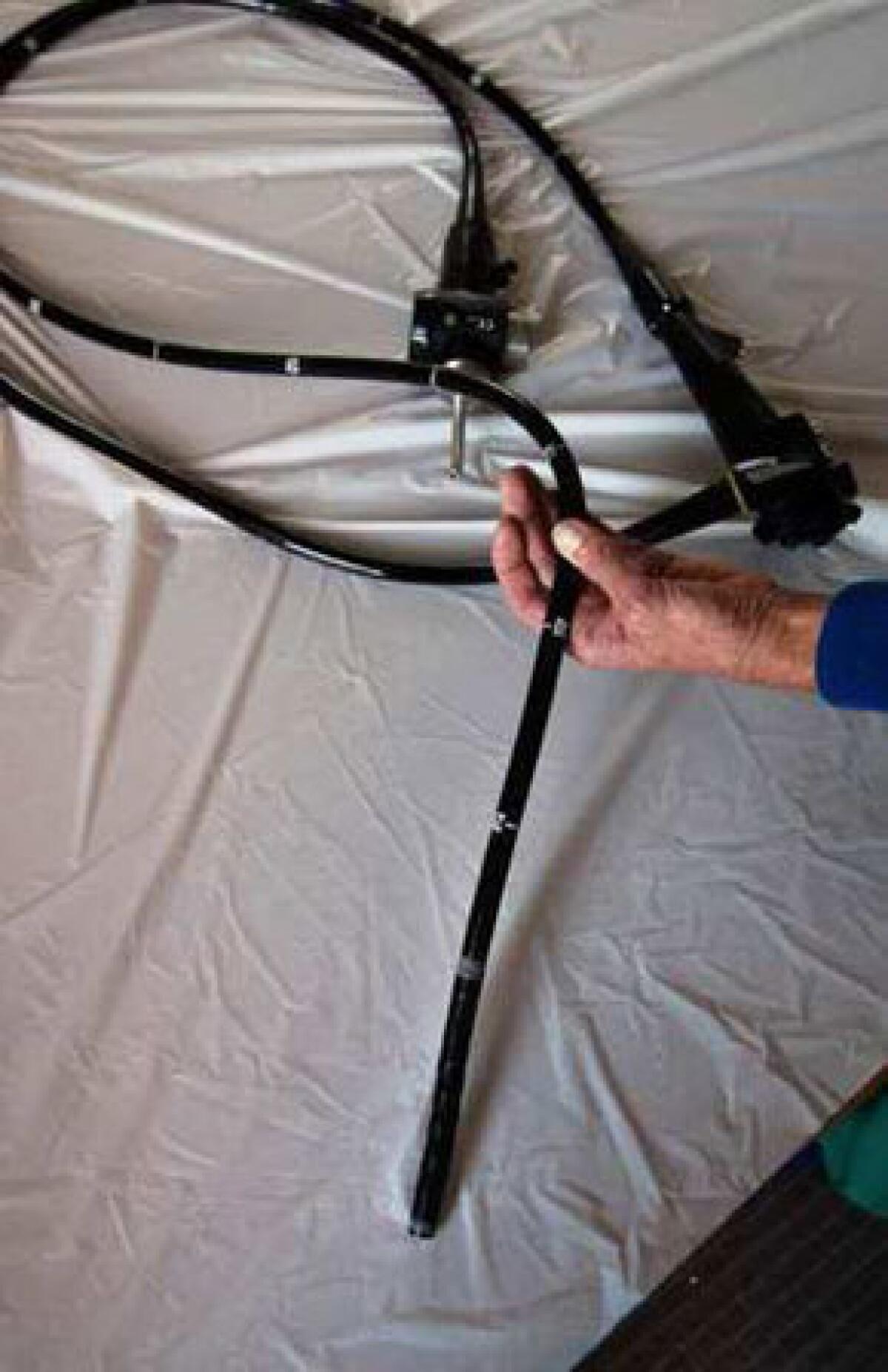Unclean colonoscopy instruments: 3 in 20 have âdirtâ from colons

Bits and pieces of âbiological dirtâ from inside peopleâs colons are being left on three in 20 of the instruments inserted in peopleâs rectums to examine their lower digestive tract, according to a study at five hospitals nationwide.
âThree out of 20 is an unexpectedly high number of endoscopes failing a cleanliness criterion,â said Marco Bommarito, an investigator with 3Mâs infection prevention division, which conducted the study. âClearly, weâd like no endoscopes to fail a cleanliness rating.â
Rates for biodirt were as high as 30% for reusable endoscopes used for upper gastrointestinal exams, according to the study, presented at the annual conference for the Assn. for Professionals in Infection Control and Epidemiology, in Fort Lauderdale, Fla.
The study comes after thousands of patients in the last four years have had to undergo HIV and hepatitis testing after authorities uncovered improper cleaning practices at hospitals, including several run by the Veterans Affairs Department.
Since 2009, at least four patients at VA facilities have tested positive for the AIDS virus after undergoing colonoscopies at the federal facilities in Tennessee, Georgia and Florida. In May, an Atlanta outpatient surgery center sent letters to nearly 456 clients warning them they may have been exposed to HIV as well as hepatitis B and C. Another 60 clients were tested last year after undergoing the procedure at a hospital in Alamosa, Colo.
About 50 million Americans undergo colonoscopies each year, according to the Centers for Disease Control and Prevention, which issued new cleaning and sterilization guidelines in 2008. More outbreaks have been linked to contaminated endoscopes than to any other medical device, the centers reported.
The nature of the biological contamination was not specified. The test used in the study detects levels of adenosine triphosphate, or ATP, an enzyme present in living cells. It is considered a marker for contamination from organic matter.





